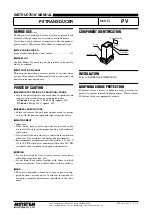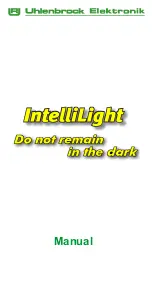
When removing C1473 use either a dual SMT tip on a temperature-controlled soldering station or two
temperature-controlled irons with small (1/16 inch) tips. It is important to melt the solder on both ends
of the cap at the same time and gently lifting the cap off
the pads.
Hint
(I simply stand C1473 on end on the blue
wire pad. This does two things: Provides the DC blocking
coupling cap required for the circuit and prevents re-
soldering the fragile pad.) If you do not use C1473, a
leaded cap of a value .01 to .1uf will work.
Just remember If you are heating pads for more than a
few seconds stop and let the board cool.
Do not attach any wires from the connecting cable to these pads at this time.
Next locate C1340 and IC Q1071. Remove a small area of solder
mask as seen in the picture, adjacent to C1340 ground pad (yellow
circle). Trim the shield ground lead to a short stub as seen in the
picture. Pre-tin the exposed copper and solder the shield lead to
the board and ground end of C1340. Make sure you have cleared
the adjacent lead and not shorted it.
Hint
(for this solder
connection I use a ¼ wide tip to insure good flow and a strong
mechanical connection. The red and blue wires are intentionally
small gage. With the cable now firmly secured via the shield, there
is no stress on the pads from the cable.
Now solder the red and blue wire with series capacitor to the pads
where C1473 was mounted as shown here. Check the service
manual for a clearer picture.
After the BHI input and output leads are
connected I place a tiny drop of 5-minute epoxy
to the cable end and use it to secure the red and
blue wires to the top of IC Q1120. The finished
work should look like this.
I put in a service loop and tie
wrap the cable as shown.






















